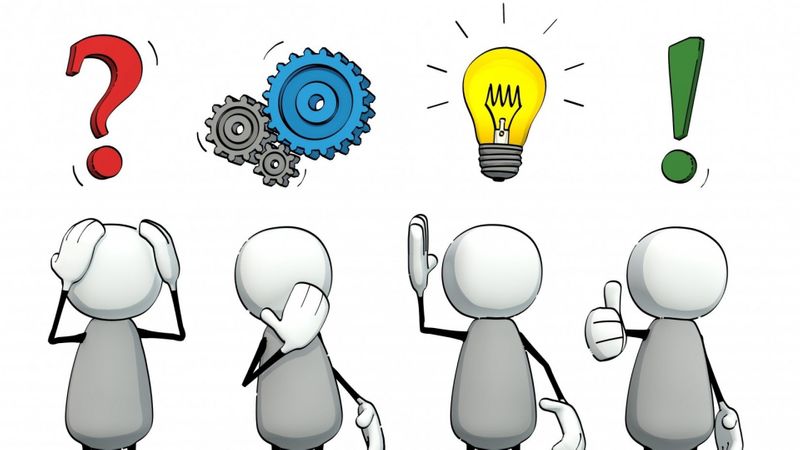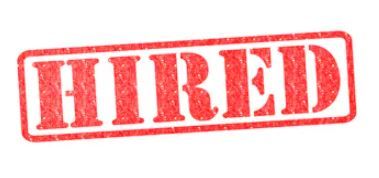Interviewing candidates can be a gruelling process. The cost of onboarding a new team member is high, estimated at around $4,129 for an entry-level employee in the US. As with any big investment, you want to make the best choice you can.

But with so many educated and well-prepared candidates, how can you find one that stands out from the crowd?
One smart move is to ask creative questions that will help reveal how a prospect really thinks, and provide a better understanding of how they will fit in your team.
The Goal Of Interview Questions
In an interview, you want to understand if the candidate will be a fit for the role. The specific qualifications vary from role to role, but usually involve a few major transferable skills:
Critical Thinking: the objective analysis and evaluation of an issue to form a judgment
Problem Solving: the ability to find solutions to complex issues
Resilience: the capacity to recover quickly from difficulties
Emotional Intelligence: the capacity to be aware of, control, and express emotions, and to handle interpersonal relationships with empathy
These traits can be difficult to assess using predictable questions, because candidates may have prepared scripted answers.

Creative Questions
To gain the most insight about an interviewee, ask questions that will take them by surprise. Here are examples of questions that will help reveal a candidate's traits in the four major categories, along with explanations:
Problem Solving
Question: "Your manager wants to buy something for the team that will increase productivity, and asks for your recommendation. What do you respond, and why?"
Why: Here is a clear problem (productivity), and you are seeing the candidate's process for finding a solution. Do they think of all the steps required, including research of a solution, testing, and feedback?
Critical Thinking
Question: "If you had to describe yourself as a popular brand (ex. Nike, Coca-Cola), what would it be and why?"
Why: This gives your candidate a chance to not only tell you about themselves, but to express their creativity. As they explain their answer, you'll be able to assess the way they analyze the question and make judgments
Resilience
Question: "Do you like to win or hate to lose?"
Why: While these options seem like two sides of the same coin, they indicate a candidate's motivation. This is direct from a senior manager at Paycor , who says you can't fault those who like to win, but "when you hate to lose, you are more inclined to learn from mistakes, learn from past experiences, and use these experiences in the future."
Emotional Intelligence
Question: "Tell me about an ethical dilemma you faced at work"
Why: This is different from the more common "time you failed" or "time you made a mistake" questions. It showcases the candidate's ability to consider an issue from multiple perspectives, taking into account how actions affect others.
Quiz
Which transferable skill does this question best demonstrate: "If you could have one superpower, what would it be?"
Some Additional Questions
Here are a list of additional questions that can help you better understand the overall role fitness of a candidate:
Problem Solving
If the internet crashed at work, what would you do?
Name a process at your school/current job that is done manually, and describe how you would automate it.
How would you handle a dissatisfied customer?
What are three metrics you would use to track the performance of our business, and how would you use the information?
Critical Thinking
You have $40,000 to start a business; what business do you start, and how do you spend that money?
What is the last book you read? Why did you choose that book?
Describe a time when someone suggested an idea to you that you'd never considered. How did you react?
What concerns you most about taking a position with our company?
Resilience
Describe a time you faced rejection; how did you handle it?
Tell me about a project you worked on that failed; what did you learn?
If 8-year-old you could see you today, what would they be most surprised about?
Pretend you are selling me the shirt you are wearing (let them respond, then counter by saying it is too expensive, too uncomfortable, or simply not a good fit - ask them to overcome these objections).
Emotional Intelligence
What is the hardest part about working in a group?
What role do you usually find yourself in when completing group work?
Imagine you are managing a team of people. One person repeatedly arrives to work late. What do you do?
Describe a time that someone was upset with you. How could you tell they were upset?
Take Action
When preparing to interview, think about the role itself, and imagine the perfect fit.
Prepare questions that will lead a candidate to provide insight into how they think, how they perceive themselves and how they will work with others.
Be adventurous when asking questions, and you'll avoid practiced answers.
When in doubt, simply ask about what they like - their favorite flavor of ice cream, best childhood memory, or dream travel destination. Their answers may say more about them than you expect!

Your feedback matters to us.
This Byte helped me better understand the topic.
